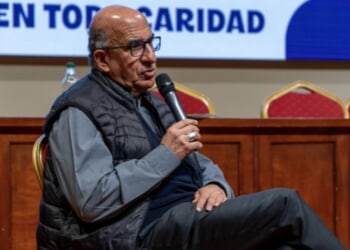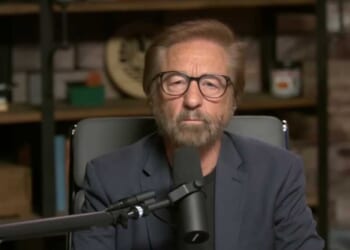Former Federal Bureau of Investigation (FBI) Director and Special Counsel Robert Mueller is reportedly residing in a memory care facility — but doubts of his cognitive abilities previously emerged during his investigation into alleged Russian interference in the 2016 presidential election.
At 81-years-old, Mueller has been in public service since he joined the Marines in 1968 and retired as special counsel in 2019, but signs of his alleged cognitive decline — most recently reported by Real Clear Investigations journalist Paul Sperry — were reportedly noticed during the creation of his report on the 2016 presidential election.
Mueller, who was appointed as special counsel to investigate allegations of the Trump campaign colluding with Russia, spent nearly two years putting together a report that was supposed to be the end-all be-all probe. (RELATED: Deep State Leakers Scramble To Mitigate Russiagate Fallout)
Mueller was 74-years-old at the time of the report’s findings in 2019, and there were reports of him struggling cognitively during his congressional testimony.
Mueller was tasked to tackle three points: determine if the Russians interfered with the election, find if the Trump campaign was coordinating with the Kremlin and decide if President Donald Trump obstructed justice.
NEW: House Oversight Committee has subpoenaed Robert Mueller to appear for a Sept. 2 deposition to provide details from an FBI investigation of Jeffrey Epstein from decades ago — even though sources tell me Mueller has been living in a memory-care facility for the past few years
— Paul Sperry (@paulsperry_) August 5, 2025
When his report was finished in March 2019, Mueller concluded that Russia interfered with the 2016 election with a preference for Trump. The investigation also “identified numerous links between the Russian government and the Trump campaign,” however, it did not conclude that individuals on Trump’s campaign “conspired or coordinated” with Russia’s government.
Although no “ultimate conclusions” were drawn regarding accusations Trump obstructed justice, the Mueller report stated, “if we had confidence after a thorough investigation of the facts that the President clearly did not commit obstruction of justice, we would so state.”
A few months after the release of investigation’s findings, he reportedly stumbled his way through a testimony before the House Judiciary and Intelligence Committees.
PBS reported in 2019 that Mueller sometimes appeared to struggle to hear the official’s questions, he could not recall key parts of the investigation and even acknowledged he attended “very few” of the around 500 interviews used during the investigation.
A 2019 clip from the hearing showed Mueller failed to recall the opposition research firm Fusion GPS — the group that produced the Steele dossier.
SHOCKING: Robert Mueller claims he’s “not familiar” with Fusion GPS, an opposition research firm that worked for Russian clients and produced the Steele Dossier for the Hillary Clinton campaign. https://t.co/iwo7R2PEme pic.twitter.com/OnGwv5qAlz
— Trump War Room (@TrumpWarRoom) July 24, 2019
Flags were initially raised during the immediate political and public backlash to his findings. Instead of continuing to answer questions, Mueller released a statement saying, “the report is my testimony.” This raised questions about Mueller’s understanding of the information contained in the report and his involvement in its creation.
These examples led some to speculate that Mueller was not the one leading the operation. Some reportedly believed Mueller’s “bull dog” and top lieutenant for the investigation, Andrew Weissman, was running the show.
Mark Corallo, who worked on Trump’s defense team, said he noticed something off with Mueller during a business meeting a year and a half before his hearing, according to the New York Post in 2020.
“He looks a little gaunt. Is he eating? Is he tired?” Corallo asked Mueller’s lawyers, who reassured him Muller was “running circles around [them].” (REPORTED: Bagel Shop That Served JD Vance Vandalized With Poorly Spelled Graffiti)
“When I saw him testifying, it was significantly more apparent,” Corallo told the New York Post. “And trust me, I was not the only one. Those of us who worked with Bob at the Justice Department after 9/11 and watched his testimony — the phone calls were flying. ‘Holy crap, what’s wrong with Bob? Is he sick?’ ”
Some of Mueller’s findings have been challenged by more evidence brought to light since 2019, including several reports released by the Office of the Director of National Intelligence (ODNI) in July.
In his report, Mueller claims, “the investigation established that the Russian government perceived it would benefit from a Trump presidency and worked to secure that outcome.”
This directly contrasts findings released by Tulsi Gabbard showing intelligence officials suppressed evidence that went against the narrative that Vladimir Putin wanted Trump to win in 2016.
Gabbard stated in a New York Post interview that Russia believed it was “inevitable” Hillary Clinton would win.
Mueller is one of many former officials subpoenaed by House Oversight Committee Chairman James Comer to testify about the FBI’s investigation into Jeffrey Epstein.





![Gavin Newsom Threatens to 'Punch These Sons of B*thces in the Mouth' [WATCH]](https://www.right2024.com/wp-content/uploads/2025/08/Gavin-Newsom-Threatens-to-Punch-These-Sons-of-Bthces-in-350x250.jpg)
![ICE Arrests Illegal Alien Influencer During Her Livestream in Los Angeles: ‘You Bet We Did’ [WATCH]](https://www.right2024.com/wp-content/uploads/2025/08/ICE-Arrests-Illegal-Alien-Influencer-During-Her-Livestream-in-Los-350x250.jpg)








